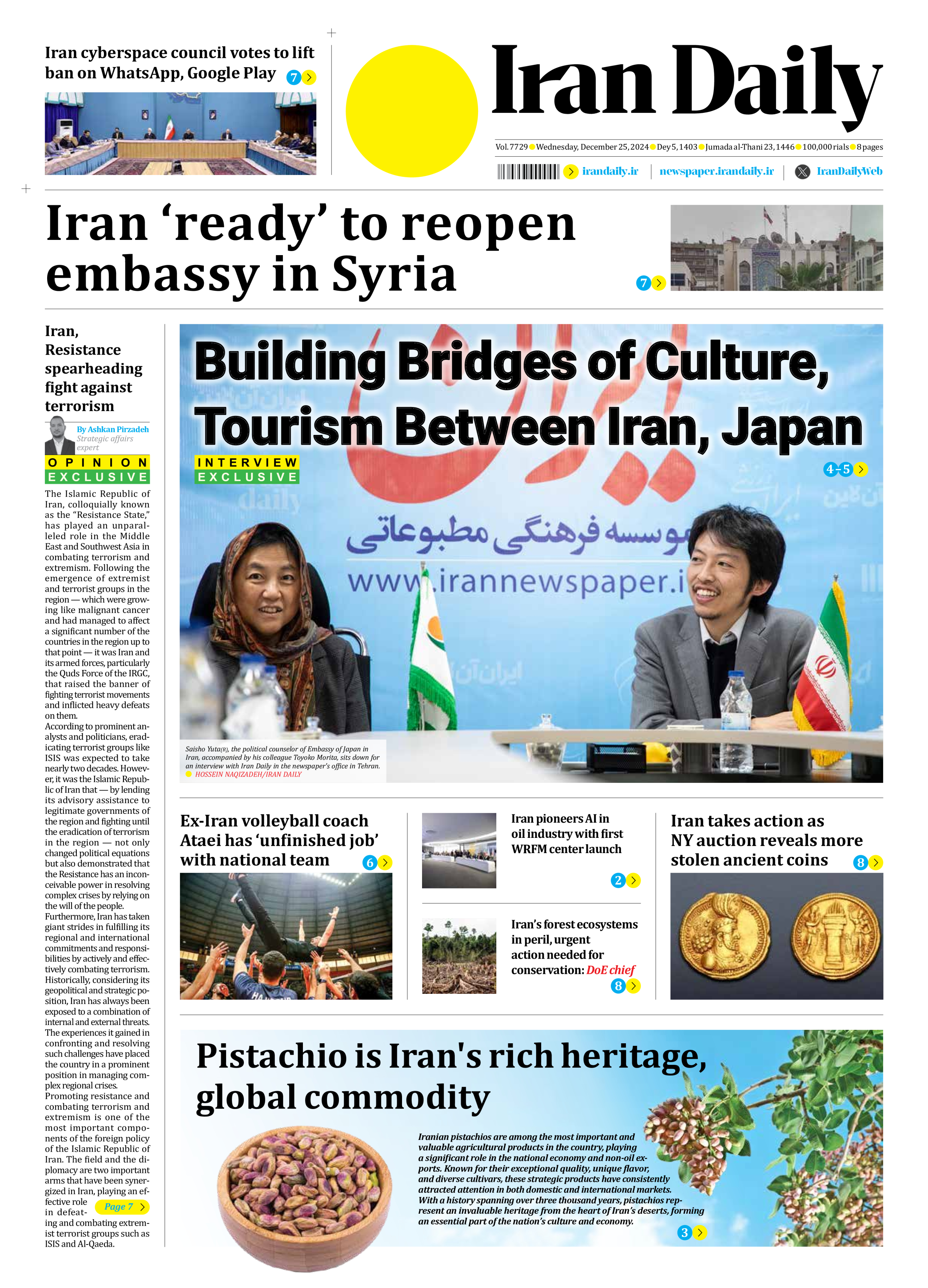
Iran, Resistance spearheading fight against terrorism
By Ashkan Pirzadeh
Strategic affairs expert
The Islamic Republic of Iran, colloquially known as the “Resistance State,” has played an unparalleled role in the Middle East and Southwest Asia in combating terrorism and extremism. Following the emergence of extremist and terrorist groups in the region — which were growing like malignant cancer and had managed to affect a significant number of the countries in the region up to that point — it was Iran and its armed forces, particularly the Quds Force of the IRGC, that raised the banner of fighting terrorist movements and inflicted heavy defeats on them.
According to prominent analysts and politicians, eradicating terrorist groups like ISIS was expected to take nearly two decades. However, it was the Islamic Republic of Iran that — by lending its advisory assistance to legitimate governments of the region and fighting until the eradication of terrorism in the region — not only changed political equations but also demonstrated that the Resistance has an inconceivable power in resolving complex crises by relying on the will of the people.
Furthermore, Iran has taken giant strides in fulfilling its regional and international commitments and responsibilities by actively and effectively combating terrorism. Historically, considering its geopolitical and strategic position, Iran has always been exposed to a combination of internal and external threats. The experiences it gained in confronting and resolving such challenges have placed the country in a prominent position in managing complex regional crises.
Promoting resistance and combating terrorism and extremism is one of the most important components of the foreign policy of the Islamic Republic of Iran. The field and the diplomacy are two important arms that have been synergized in Iran, playing an effective role in defeating and combating extremist terrorist groups such as ISIS and Al-Qaeda.
Page 7







